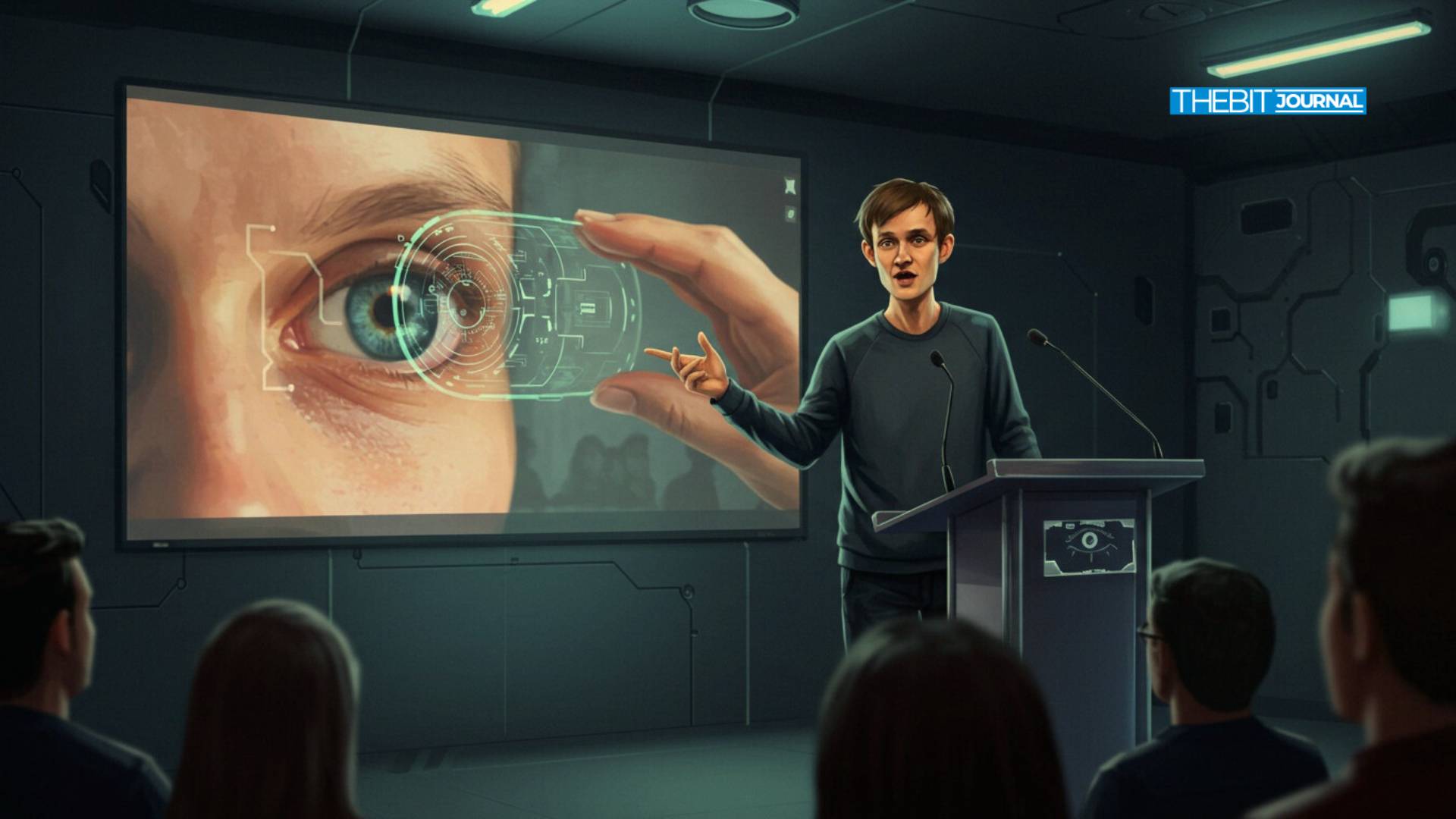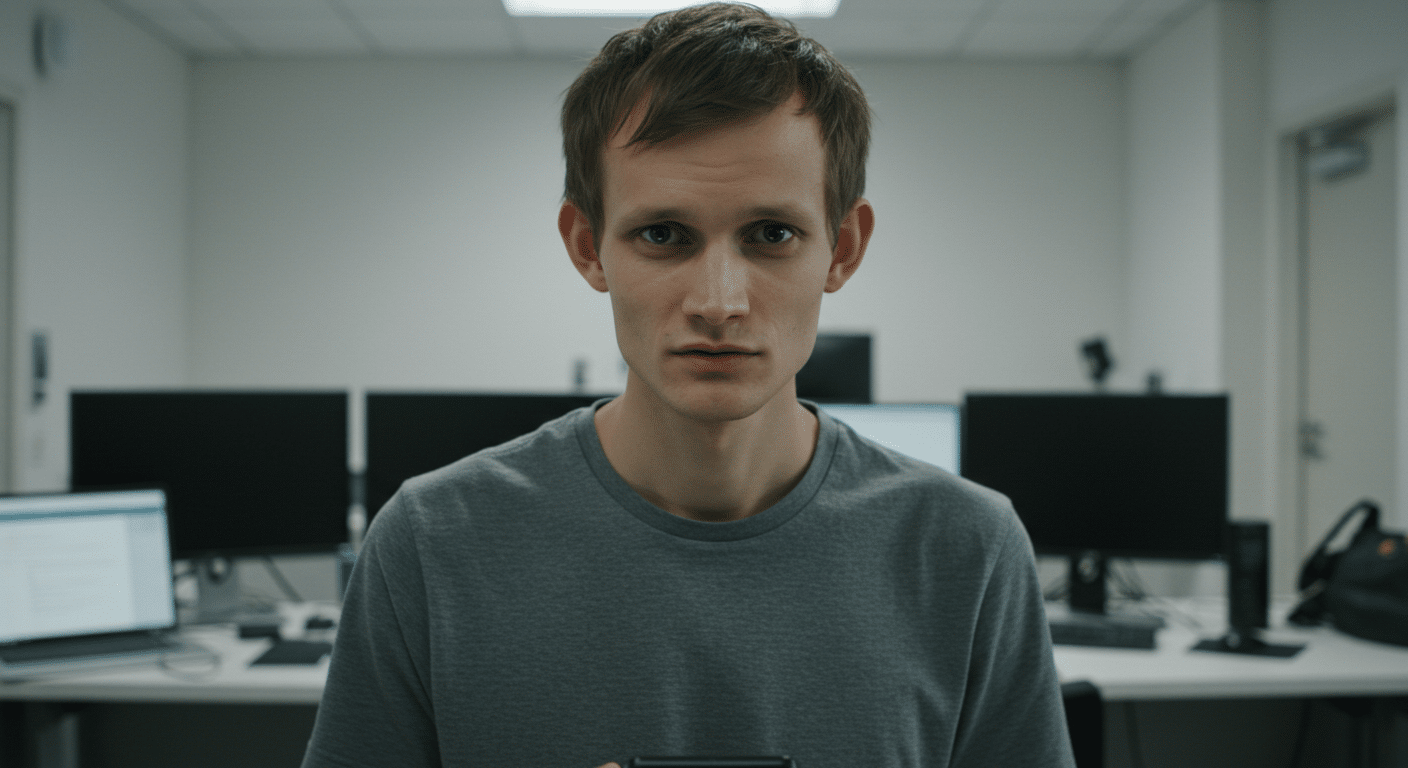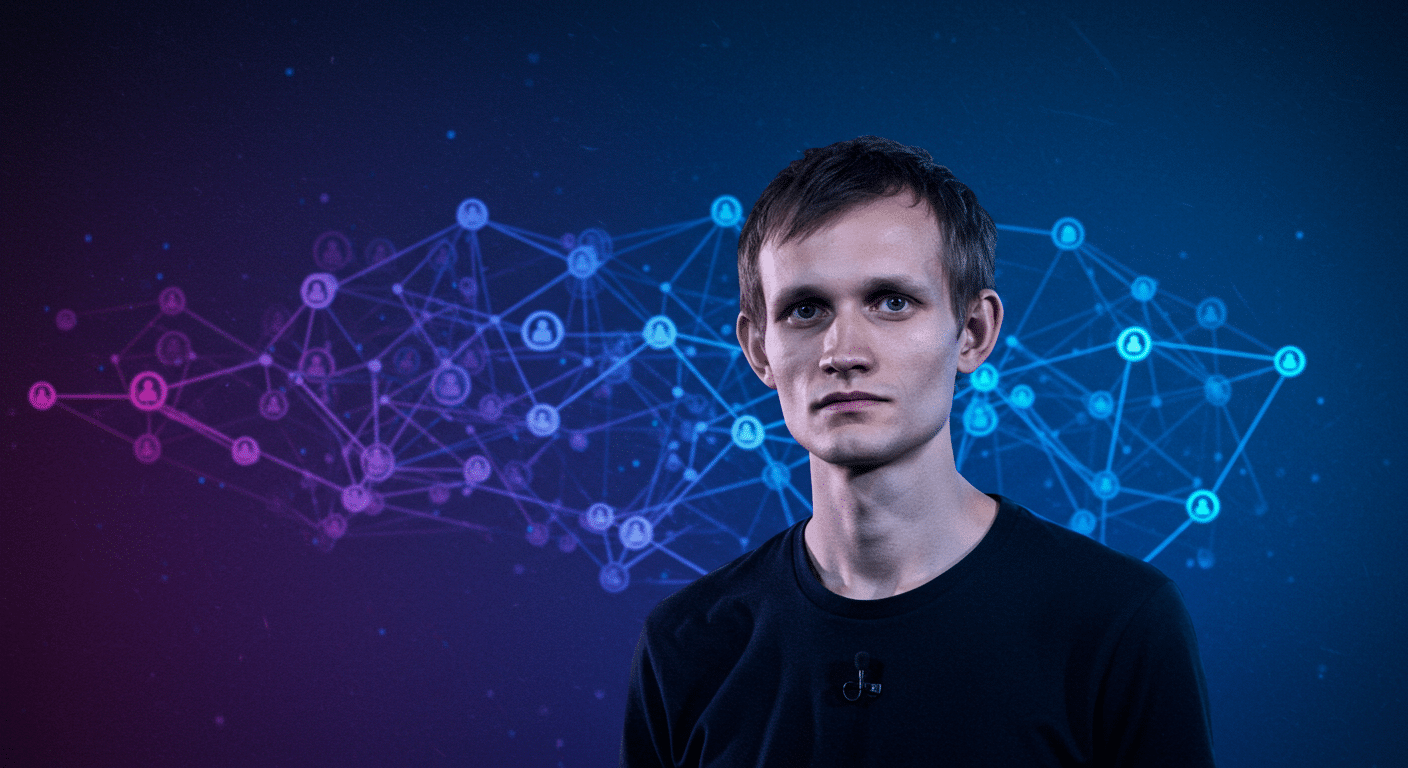Vitalik Buterin Warns of Hidden Risks in Altman’s Eye-Scan ID Plan
0
0

A new push for digital identity systems is raising serious privacy concerns, as Ethereum co-founder Vitalik Buterin warns of long-term risks. Worldcoin, now rebranded as “World,” aims to scan users’ irises to distinguish real humans from AI using zero-knowledge technology. However, Buterin argues that despite privacy layers, centralized digital ID systems could still undermine individual anonymity.
Vitalik Buterin Warns of Identity Risks
Vitalik Buterin has raised concerns about the identity model promoted by the World project led by Sam Altman and Alex Blania. He acknowledged the use of zero-knowledge proofs but emphasized that the core structure still reflects a centralized “one-per-person” system. That, he said, could increase the risk of linking all user activities to one identity.

He added that, in a real-life situation, people use pseudonymity to keep personal, work, and sensitive communication distinct. Pseudonymity is impractical to use in a single digital ID, which leaves its users vulnerable to observation or other directed policies. Governments already have more legal authority to receive disclosure of identity so that they can further deteriorate user privacy.
Buterin cited recent examples, such as the U.S. government’s requirements for visa applicants to make their social media profiles public. These policies risk weaponizing digital identity unless safeguarded adequately. Thus, effective privacy-preserving frameworks emerge as a necessity in an identity verification system.
Pluralistic Identity as a Safer Path Forward
Vitalik Buterin proposes a shift towards pluralistic identity frameworks to mitigate the dangers posed by singular identity models. He suggested combining decentralized identifiers and social-graph-based methods to authenticate humans without endangering their anonymity. This approach distributes trust across multiple systems, reducing reliance on a single authority.
Pluralistic systems operate on either explicit models using community testimonials or implicit trust through multiple identity verifications. This design limits the power of any one entity and better protects against misuse. In such frameworks, a user can maintain varied identities for different purposes without creating a public linkage.
According to Buterin, merging one-per-person solutions with social-based mechanisms will help create stronger and safer digital ecosystems. These hybrid models could offer authentication, spam resistance, and Sybil attack protection, without undermining freedom or privacy. Thus, they align better with internet values rooted in decentralization and openness.
Vitalik Buterin Warns Against ID Centralization
Pluralistic systems seem safer, but deployment is still left with technical and logistical challenges. Vitalik Buterin acknowledged that ZK-based IDs are a significant innovation, but said integration into pluralistic ecosystems is crucial. Otherwise, the risk of moving to the surveillance-prone infrastructure exists, particularly when pressure from a regulator is applied.

The application of these models at scale in the future will be a collaborative effort between platforms, developers, and policymakers. To pass the test of these systems, they will have to find that magic combination of practicality, security, and decentralization without infringing on user experience. Developers need to make identity systems loose and capable of interoperating between services and environments.
Buterin maintains that identity should not be controlled by any single authority, whether a platform, government, or corporation. To remain non-discriminatory and against centralization, he promotes open-source standards and frameworks. In the absence of such protection mechanisms, the danger of identity abuse may perpetuate in both democratic and authoritarian environments.
Overview
Vitalik Buterin has warned that centralized one-person-per-ID systems, even with privacy tech, risk eroding user anonymity. He proposes pluralistic digital identity systems, which allow the integration of zero-knowledge proofs and decentralized and social verification systems. The models that can provide more privacy but manage to verify users efficiently exist.
FAQs
What is Vitalik Buterin’s concern about Worldcoin’s identity system?
Vitalik Buterin believes Worldcoin’s one-person-per-ID system can endanger user anonymity despite using zero-knowledge proofs.
What are pluralistic identity systems?
Pluralistic systems distribute identity verification across multiple sources or methods, ensuring no single authority dominates user data.
How can pluralistic identity models preserve privacy?
These models allow users to manage multiple pseudonymous identities, preventing a single point of exposure or control.
Why is ZK (zero-knowledge) technology important here?
Zero-knowledge technology enables proof of identity without revealing personal information, but it must be applied within broader privacy structures.
What is the future of digital IDs according to Vitalik Buterin?
Vitalik Buterin supports hybrid systems that merge ZK-tech with social or decentralized structures to ensure privacy and accountability.
Glossary of Key Terms
Zero-Knowledge Proof (ZK): A method allowing verification without disclosing actual information.
Pluralistic Identity: A decentralized ID approach that uses multiple, independent verification systems.
Sybil Attack: A digital threat where one entity creates many identities to manipulate systems.
One-Per-Person ID: A system assigning a single digital ID to each individual.
Pseudonymity: Use of multiple identities to separate digital footprints and protect privacy.
References:
Read More: Vitalik Buterin Warns of Hidden Risks in Altman’s Eye-Scan ID Plan">Vitalik Buterin Warns of Hidden Risks in Altman’s Eye-Scan ID Plan
0
0
 Manage all your crypto, NFT and DeFi from one place
Manage all your crypto, NFT and DeFi from one placeSecurely connect the portfolio you’re using to start.







